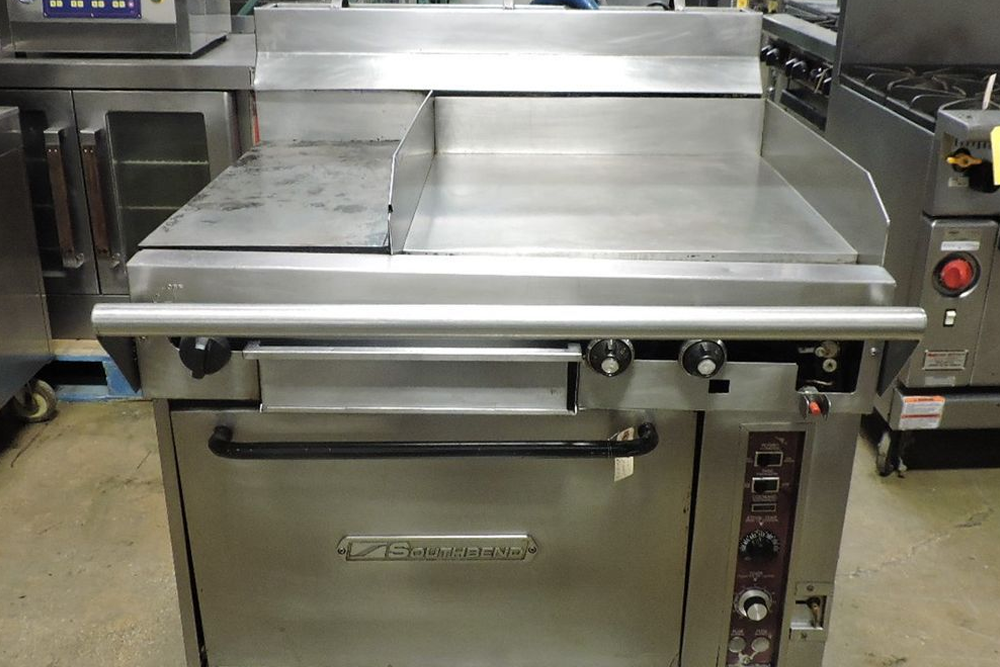
Business type
In simple words, some businesses are riskier than others. Your niche or industry might be a high risk to a lender, which will drive up your interest rate. For lenders, a higher interest rate indicates that some of the risks are reduced. Apart from your niche and industry, applying for a new business loan will also affect your interest rate. Established businesses are viewed as much less risky.
Most conventional lenders need at least three years of business history. If your organization is a new startup, you might want to look into alternative means of cash flow; like business credit cards, securing capital via an online lender, and crowdfunding.
Credit standing
Both credit history and credit score are huge elements when it comes to business lending. Your credit standing impacts your ability to get accepted for a loan, but it also affects your interest rate. To get a low-interest rate, you will need a good credit score and a solid credit history. This indicates low outstanding debt, never making a late payment, and having a lot of credit history.
Without a good credit standing, you will find that it is challenging to qualify for a loan via a traditional lender. If you do get accepted, count on having a high-interest rate. To increase your chances of getting accepted with an agreeable interest rate, take time to work on both your personal and business credit. You will be surprised by what can occur in several months.
Your business plan
Starting a business without a solid business strategy is dangerous. Not having a business plan will also affect your ability to get accepted for loans together with loan rates. Before applying for any kind of business financing, it is essential to have an extensive business plan. This demonstrates to the lender that you are serious about your company and plan for your future growth.
When designing a business strategy, be sure to incorporate:
- Marketing plan
- Current income and projections
- Marketing research
- Information about the management team
- An executive summary
With a detailed strategy, a lender will have a holistic understanding of your company.
Cash Flow
Creditors set interest rates based on prevailing economic conditions and the threat that the borrower will default on the loan. One way to lower that risk is to have a positive daily cash flow, that is, you gather more money than you spend on a day to day basis. Cash flow is considered to be as important as a credit score. Your monthly business income must be stable with moderate growth. Slumps in cash flow can be challenging.
Of course, if your organization is seasonal, you can expect to have a year-round cash flow. In this case, write an explanation to the lender as to why your company only generates income six months out of the year. From there, you will want to show that you have sufficient supplemental income to pay for expenses during the remaining six months; however, you also have adequate justify over to pay loan payments.
Business capacity
Capacity means how much money a business can borrow, which is how much they can pay back and how fast. Lenders calculate this by comparing the usual monthly liabilities and general monthly revenue. How long the business has been operating and how long it has been making a profit also makes a significant difference. Most lenders will request accounting evidence of two or even three consecutive profitable years to accept to give out a business loan.
Available collateral
Collateral acts as a lender’s protection in case you default on the loan. Collateral can be personal assets or business assets. Almost every business loan requires collateral. Company assets can be real estate, equipment, company-owned machinery, inventory, or accounts receivable.
If you cannot make payments, the lender can seize your assets and sell them to recover their loss. For most lenders, the more collateral you can offer against a loan, the lesser the risk. This, in turn, indicates a lowered interest rate.
Small companies and startups often lack the required collateral. In this case, it might be best to seek alternative financing options.
Economic climate
Whereas there are some elements you can control, there are other elements that affect your loan interest rate that are out of your hands. Credit accessibility and interest-rate fluctuations are part of the loan process. There are cases when the economic climate is more ideal for business growth than others. If you happen to hop in at less than perfect time, get a proactive lender that will work with you to get your company the cash flow it requires.
Types of lending institution
Different kinds of lenders have been found to offer different business loan interest rates:
- Brokers who are not lenders will find cheaper rates for their customers ( find the right ones)
- Foreign banks appear to offer cheaper interest rates
- Special banks might offer cheaper rates than larger retail banks
Loan specifics
Different loans have different interest rates:
- Secured business loans will also come with cheaper rates than unsecured business loans
- The larger the loan, the cheaper the interest rate since businesses will have more time to make repayments.
Future growth prospects
Generally, a loan availed to better the prospects of the business. If the business shows excellent prospects of growth via its business plans, a lender might base the interest rate at a lower level. This would also be based on the business plan and the ability of the promoter to steer the business towards growth successfully. All these elements together form the basis on which the business interest rates are designed.
Inflation
As per definition, inflation is the measure of the rate at which the price level of a particular basket of chosen goods and services increases over some time. The extent of inflation in the economy plays a big role in determining the economy’s interest rate. When inflation in the economy increases, things turn costlier, and hence, there is a fall in the individuals’ purchasing power. In such a case, the interest rates rise.
Monetary policy of the country
Many tools are used to adjust the amount of money supply in the market, and each of them has a bearing on the amount of money in circulation. If the liquidity is adequate, then the interest rates on loans are lower and vice versa.
Which financing options are available?
Today’s small businesses are looking for alternative funding solutions online for short-term capital needs.
Sometimes you can get a loan via the Small Business Association other times; it is best to go via an alternative lending institution that provides a solution that is suitable for your needs and limits your repayment risks, even though the loan rate is slightly higher.
The concept is that it is better to get a loan you need with terms you can manage than to struggle with a loan product that is not suitable for your business.
The small Business Administration (SBA)
The Small Business Administration offers small businesses with an array of funding, from the smallest needs in microlending to equity investment capital and substantial debt. The SBA is not the real lender; however, it instead connects you to one of their lending partners and then backs part of your loan with a guarantee.
They provide several kinds of loan products, such as 7(a) loans to eligible borrowers for beginning, expanding, and acquiring a small business. They also have the 504 loan plan, which offers growing businesses with long-term, fixed-rate financing for significant fixed assets, like buildings and land.
When is SBA a good choice:
- When you are focused on a low-interest rate and have created a solid, extensive business plan
- If you have a good financial history to back up your credit
- When you have a lot of time to wait for the funding that can take up to ninety days
Alternative lenders
Usually, alternative lenders have various loan products accessible that meet the needs of today’s entrepreneurs. Generally, the interest rates are slightly higher; however, you stand a great chance at easy, straightforward acceptance on a great loan product that is ideal for your needs.
Alternative lenders look at the overall health of your business, and what you have built takes priority in the application process. In simple words, your credit score is often not the primary focus. These organizations often have the flexibility to craft loans to meet the needs unique to your company. Applications are generally fast, simple and offer you the money you need fast.
They also provide various funding solutions, inclusive of the business cash advance and small business loans. A business cash advance refers to unsecured advance on your future sales revenue to use today. It is paid depending on a small, set percentage of your business’s daily credit card processing receipts. This indicates that payments are not a set amount but adjust as your business flows, which is ideal for companies that experience slow periods.
When are alternative lenders a great choice
- When you need a repayment plan that is reasonable and takes your business’ sales into account
- If you need funding quickly and simply
- When you are overwhelmed by having to dig up a wealth of financial documentation and records
- When your credit score is less than the seller
When considering factors that impact business loan interest rates, it is easy to be overwhelmed. As a business owner, if you are planning to apply for a business loan, keep these factors in mind and prepare as much as possible.









